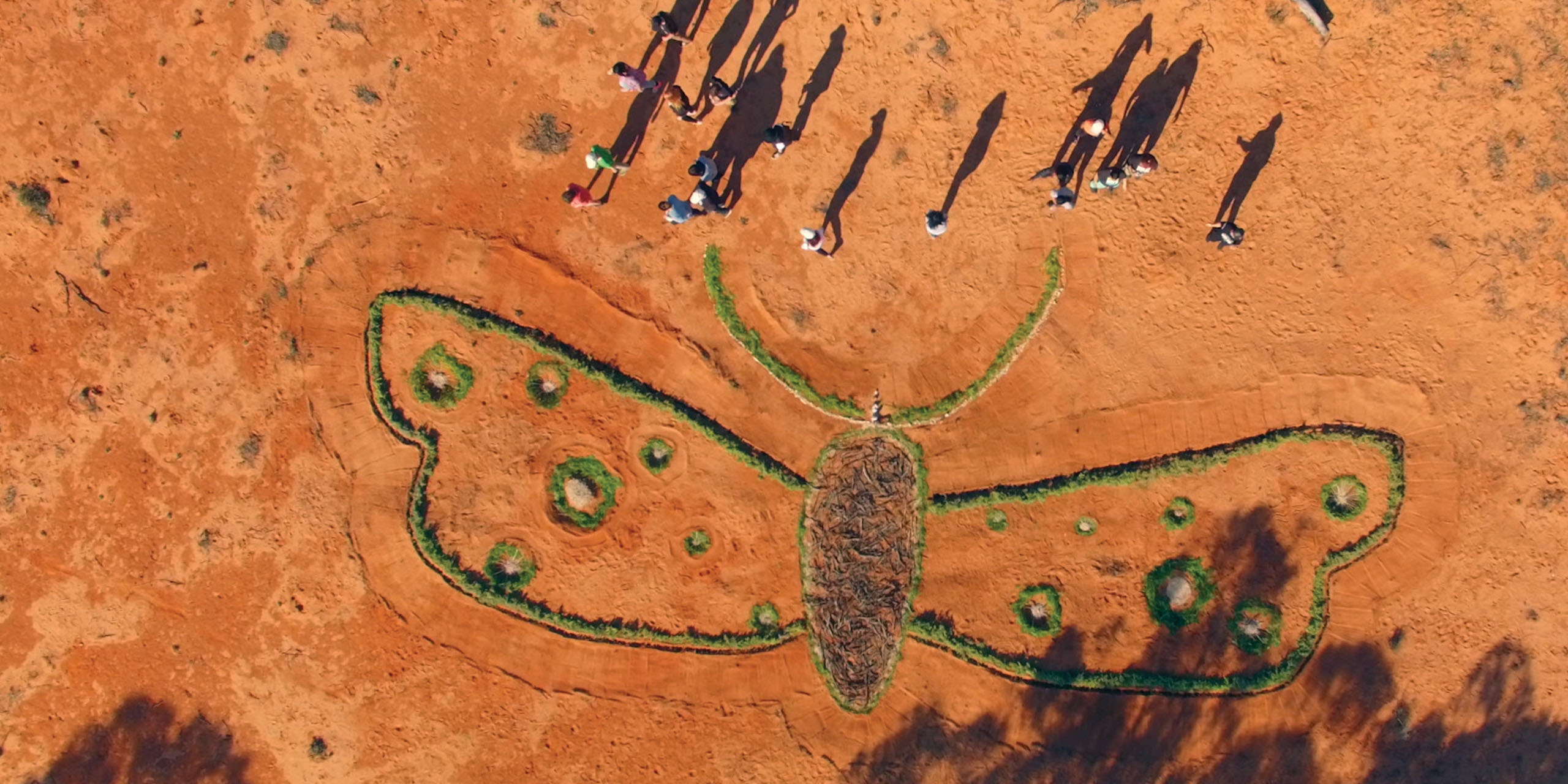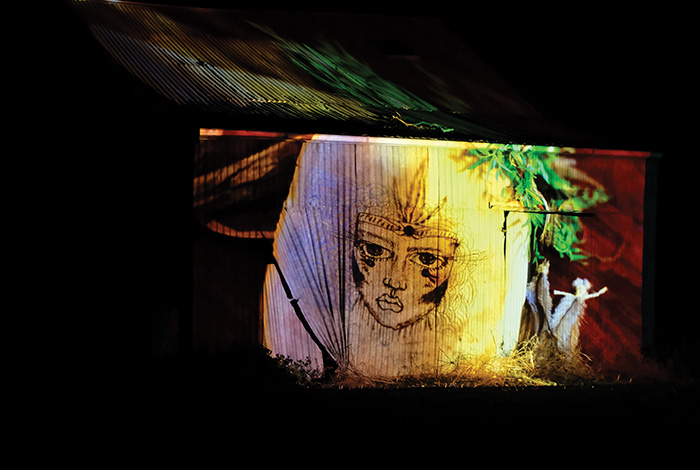Through the development of a place-based design curriculum that centralises Indigenous narratives, voices and knowledge, Marngo Designing Futures seeks to understand and address the systemic impediments to higher education facing young Indigenous people.
By providing opportunities for the sharing and acquisition of Indigenous design knowledge in a two-way learning framework that emphasises self-determination, co-creation and shared insights, participants develop problem-solving, design thinking and project management skills, which can then be carried into university and industry, directly benefiting their own communities and creating a shared space for understanding.
Decolonizing the institutional construct through the provision of curriculum, projects and resources that encourages the integration of Indigenous design knowledge, processes and thinking is central to the Marngo program.
From the outset, Indigenous engagement was prioritised and the initial groundwork was focused on building respectful relationships with Indigenous designers and artists, and deepening connections with Indigenous organisations, communities and schools across Victoria.
Continuous efforts are made to ensure that Marngo is framed in relation to a range of local Indigenous perspectives. Marngo Designing Futures incorporates workshop programs developed by Indigenous designers, artists and remote schools about how Indigenous design, culture and knowledge can drive innovation and activate social transformation and is a viable career pathway.
More broadly, Marngo supports the growth of an Australian creative industry that is holistic and provides opportunities for Indigenous design and planning methods to be better understood by Indigenous and non-Indigenous peoples alike.
By challenging Euro-Western modes of learning and doing through the centralisation of Indigenous design knowledge, perspectives and voices, enabling programs like Marngo have the potential to add Indigenous cultural literacy to higher education and in doing so led to significant long term benefits for the acquisition and transfer of local knowledge that reinforces how Indigenous design and Indigenous-led collaborations can drive innovation, activate social and environmental transformation.



